Public policy development can sometimes be an exercise in detachment and data-driven dispassion. To those at the margins of public sector power in such instances, it seems that the rules, policies, and programs created by others are designed to impact the inanimate and unfeeling—not them. It is this context of impersonal policymaking that makes the work of our Chicago-based nonprofit, Community Organizing and Family Issues (COFI), meaningful.
Leading COFI’s campaigns to center community, families, care, and humanity at the heart of policy decisions are “COFI parents”—primarily mothers and grandmothers of color who come from historically underinvested communities. In her research, sociologist Jennifer Cossyleon called COFI parents “motherleaders,” and noted how feminist scholars have shown that “the labor of mothers of color inside and outside the household is inseparable from family, kin, community, and their lived experiences of intersecting oppressions.”
COFI’s model is an important example of how low-income and working-class mothers and grandmothers of color are making rigid public policies and public finance systems more responsive to their needs. COFI staff help these mothers and grandmothers, who start off as volunteers, recognize that the skills they honed as parents translate into leadership skills. After participating in training and team-building exercises with their peers, COFI parents go on to lead collective action efforts to make policy changes that address their daily family challenges and those of their communities.

Through “the COFI Way” framework, COFI parents have led successful campaigns to increase access to early learning programs for communities of color and replace “zero tolerance” school discipline policies with restorative justice practices. Their collaborative economic justice efforts have also led to legislative victories that made utilities more affordable, capped predatory lender interest rates in Illinois, and provided a guaranteed basic income for 5,000 families in Chicago.
Reforming a fines and fees system that hurt vulnerable communities
COFI parents’ policy goals included reforming the city’s fines and fees system, and their efforts ramped up in 2018 after a series of reports highlighted how Chicago was disproportionately ticketing predominately Black and Latino or Hispanic neighborhoods, with thousands of Black motorists forced to file for bankruptcy due to parking ticket debt.
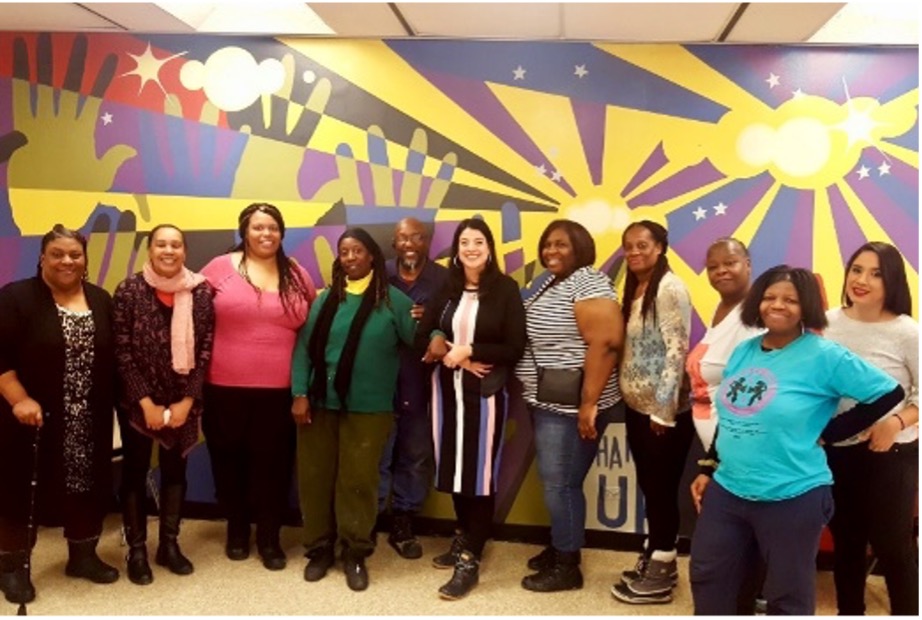
Around this time, COFI released a report highlighting results from over 300 parent-to-parent surveys and interviews about the impacts of debt, including parking ticket debt and other fines and fees. COFI parents were able to engage hard-to-reach populations, who often distrusted government stakeholders. Participants expressed feeling inundated with ticket debt, sometimes choosing between paying for rent and food or paying their parking tickets.
During their research, COFI parents and staff found San Francisco’s Financial Justice Project task force model worked well in delivering fines and fees reforms. After a series of meetings with Chicago officials, COFI parents and staff were able to convince them to launch a similar model. Together with Chicago City Clerk Anna Valencia and others, COFI co-founded the Chicago Fines, Fees & Access Collaborative in December 2018 to evaluate and reform the city’s fines and fees policies. Members of the Collaborative included elected officials, city departments, researchers from local universities, as well as local and national advocacy groups.
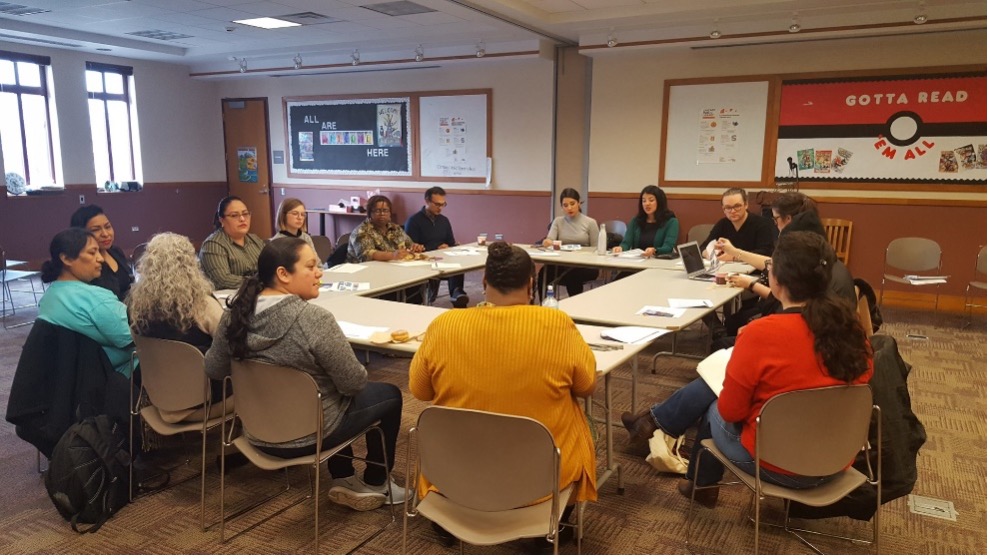
The Collaborative’s meetings and listening sessions required elected officials and government staff from various departments to listen to the experiences of directly impacted communities and view them as partners in creating solutions. This meant lowering their defensive postures and challenging assumptions about who is an expert and what constitutes expertise in policymaking spaces.
COFI parents were also adamant that Chicagoans be included in the policymaking process, particularly those from the communities most impacted by fines and fees. COFI ensured bilingual interpreters and child care were available in community listening sessions so residents who were traditionally excluded from public meetings, such as working parents or immigrants, could participate.
There were certainly tense moments during Collaborative meetings. But there were also moments of clarity. COFI parents and Chicago residents described how parking ticket debt resulted in license suspensions, which hampered their ability to commute to work and keep their jobs (which they needed to pay off their debts). They also shared that City Hall staff at payment centers gave them the runaround when making payments, requiring larger down payments than initially indicated on a parking ticket or sending them to different offices or buildings when they had concerns. COFI parents and Chicago residents said that parking ticket instructions were written in tiny letters and jargon, while parking signs and administrative paperwork and guidelines were unavailable in multiple languages. They described how the entire system was predatory—from excessive ticketing in their predominantly Black and Latino or Hispanic neighborhoods, to doubling of fines, to harassment they experienced from third-party debt collectors. Most importantly, they conveyed how rarely, it seemed, these policies were designed with their humanity in mind.
After months of work, the project culminated in a set of collectively developed policy recommendations for overhauling the city’s ticketing and debt collection system—some of which the mayor adopted. These preliminary reforms included ending driver’s license suspensions for unpaid parking tickets and eliminating the doubling of the $200 fine for drivers who failed to purchase a city sticker (a vehicle decal indicating payment of the city’s wheel tax and one of the biggest contributors to debt). Other reforms made payment plans more affordable and accessible, halted library fines, and ended the practice of shutting down water due to unpaid utility bills.
While the struggle for reforming Chicago’s fines and fees continues, this effort to move rigid public finance systems would not have been possible without COFI parents’ leadership, passion, and collective action.
The value of making policy personal
Working together, Collaborative members learned the value of listening, collaborating, and centering the “personal” in policy development. Leaders should integrate such community engagement into policymaking, and not treat it as an afterthought. Keeping a finger on the pulse of communities requires regular dialogue. More importantly, those at the margins of public sector power should be included in brainstorming, research, development, implementation, and evaluation of policies affecting them.
Additionally, elected officials and other policymakers in leadership roles should recognize they too have agency. Many may view themselves as inheritors of inequitable systems that have existed over generations—but few may believe their current decisions are creating or exacerbating those inequities and that they might, in fact, be responsible for injustices through their actions or inaction. These leaders should remember they are accountable to the people they serve, and the people should not have to move policy mountains to be heard and valued.
Nevertheless, COFI mothers and grandmothers show us that people at the margins of power can organize, lead, and win impactful policy change. COFI trains other organizations and leaders across the country in the COFI Way, but our hope is that one day, COFI parents will not have to constantly struggle, organize, and fight. Our wish is for all systems, policymakers, and people to celebrate their dignity, agency, and humanity.
Until then, COFI’s model can help enhance transparency and promote accountability in policymaking by enabling low-income and working-class individuals to engage as co-decisionmakers and provide oversight of policies. COFI parents also show us the value of discarding “detachment” and “dispassion” from policymaking. Policies can be stronger and more responsive to the needs of marginalized communities when they are developed collaboratively, with care and community.
Note: Tonantzin Carmona, a Brookings Metro fellow and co-author of this piece, is a board member of COFI.



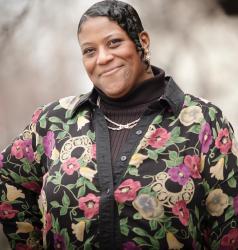

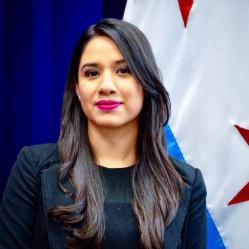

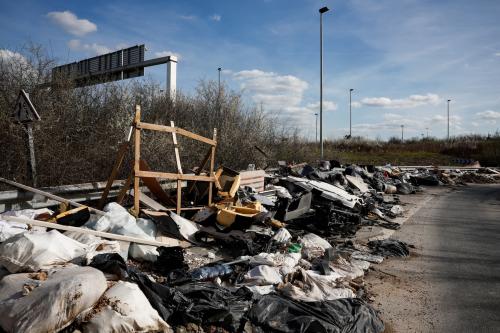

Commentary
How Chicago mothers and grandmothers are changing policy through collective action
March 8, 2022